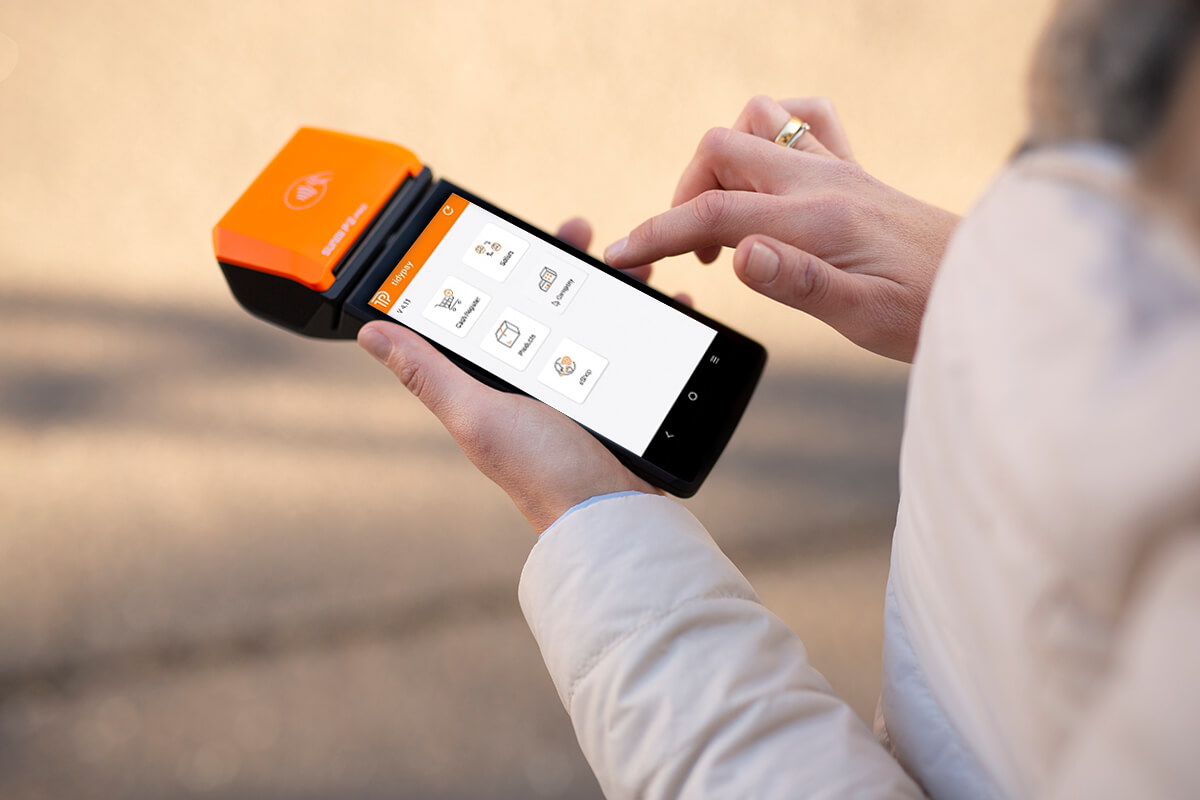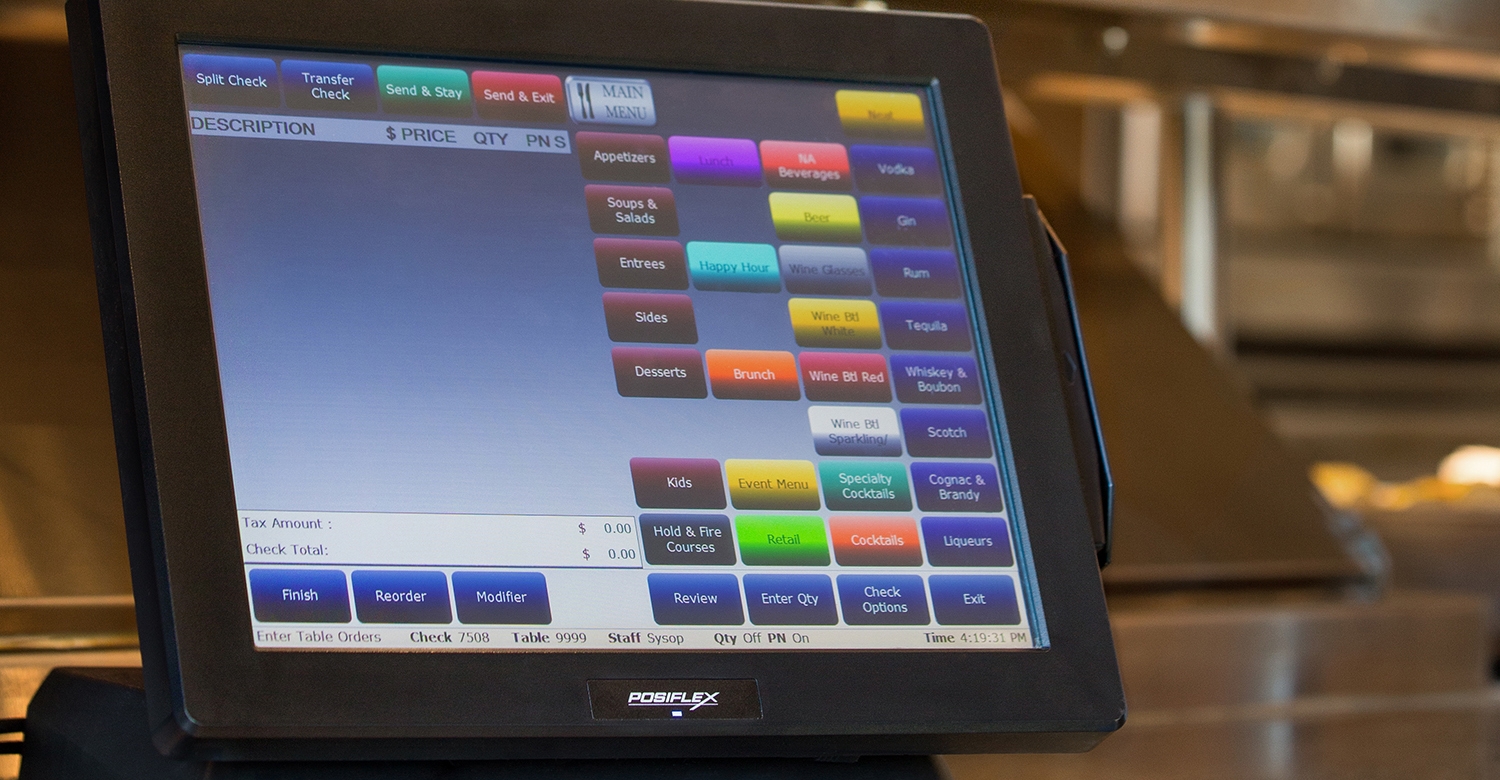Some Known Incorrect Statements About Pos Systems
Little Known Questions About Point Of Sale Systems.

Point of Sale: Retail Point-Of-Sale Solutions Streamline Deals
Top Guidelines Of Pos Systems

Hardware Parts of a Point of Sale System What makes a POS system tick? It's not simply software application; the hardware plays a starring role. Consider it as the body to the software's brain. Without the right hardware, even the most sophisticated POS software application is simply a pretty face. Necessary POS Hardware So, what are the must-haves? Let's simplify. The main processing unit, typically a computer system or tablet, is the heart of the operation. The screen or touchscreen display enables personnel to engage with the system. A barcode scanner accelerate the checkout process. Keep in mind the days of manually going into each code? The reliable receipt printer offers clients with a record of their purchase. A cash drawer keeps your money safe and arranged. A card reader enables clients to pay with credit or debit cards. Diving Deeper: Beyond the Basics However wait, there's more! Depending upon your company, you may need specialized hardware. For example, a restaurant may integrate kitchen printers to relay orders, while a retail store may utilize label printers for product tagging. Ever question how your regional bakeshop quickly prints those delicious-looking labels? Selecting the Right Hardware: A Balancing Act Selecting the right hardware isn't just about purchasing the most expensive devices. It has to do with finding the sweet spot between functionality, durability, and budget. A small business simply beginning may choose a more standard setup, while a high-volume merchant will require robust, high-performance devices. Is it much better to purchase new or utilized? Consider your alternatives thoroughly. A new system uses the newest technology and service warranty protection, however a reconditioned system can conserve you money. The Future of POS Hardware What does the future hold? Expect to see much more info more combination with mobile gadgets, biometric scanners for employee authentication, and advanced analytics dashboards displayed on larger, clearer screens. Imagine a world where stock is immediately upgraded in real-time as items are scanned-- a world where you can track your best-selling item from anywhere in the world. The possibilities are limitless, and the hardware is constantly evolving to meet the needs these days's companies. Are you all set to upgrade your point of sale system?
Software Application Features and Capabilities: The Heart of Your POS System
Ever enjoy a seasoned barista move through a busy morning rush? Their secret isn't just caffeine; it's a smooth dance with their POS system. The software application is the conductor of your company symphony, orchestrating whatever from sales to inventory. But what notes should you be listening for? What capabilities truly matter in today's market?
Inventory Management: Beyond Counting Beans
Forget spreadsheets that haunt your dreams. Modern POS systems provide real-time inventory tracking, alerting you when your stock of artisanal coffee beans dips precariously low. Consider it as a digital guardian angel, avoiding those uncomfortable "Sorry, we're out!" minutes to clients. What if you could likewise forecast demand based on historical data? Numerous systems now offer forecasting tools, a powerful weapon against overstocking and lost sales. This helps avoid the situation of lacking popular items or accumulating excess stock of slow-moving products, both of which can constrain capital and area.
Sales Reporting and Analytics: Translating the Data
Sales data is the brand-new gold, and your POS system is the miner. Forget just knowing how much you offered today. Dive deep into the information to reveal trends, identify your best-selling products, and understand client behavior. Which menu product sets perfectly with the everyday special? Which promotion resonated most with your clientele? These insights are not simply interesting; they're actionable intelligence. Without trustworthy sales reporting, navigating the intricacies of organization decision-making ends up being like cruising without a compass, increasing the chance of mistakes and missed out on opportunities.
Customer Relationship Management (CRM): Structure Bridges, Not Walls
Keeping in mind a regular customer's name and preferred order is lovely, however scaling that individual touch is challenging. POS systems with CRM capabilities enable you to track customer purchase history, choices, and even birthdays. Picture immediately offering a discount rate on their birthday-- a small gesture that promotes commitment and encourages repeat company. There is the possible snag of bad information quality, which can lead to incorrect customer profiles and ineffective marketing efforts.
Payment Processing: Streamlining the Transaction
The checkout experience can make or break a sale. Smooth integration with various payment approaches-- credit cards, mobile wallets, even copyright-- is non-negotiable. Can your system deal with split payments? Does it offer protected tokenization to secure client data? A clunky payment process is like hitting a sour note in your service symphony, potentially interrupting the whole performance. Guaranteeing compatibility with evolving payment technologies and adherence to security standards are vital for maintaining customer trust and functional performance.
Worker Management: Keeping the Group in Sync
From clocking in and out to managing consents and tracking performance, staff member management features improve operations and enhance accountability. Is scheduling a nightmare? Many POS systems use integrated scheduling tools, enhancing staffing levels based upon forecasted demand. A typical obstacle that is often overlooked is the obstacle of incorporating employee management functionalities with payroll systems, which can result in errors and ineffectiveness in wage calculations.
Advanced Features: Leveling Up Your Operations
- Table Management: Ideal for restaurants, this feature enables you to picture your dining-room, track table status, and manage bookings.
- Loyalty Programs: Reward your finest consumers and encourage repeat service with integrated loyalty programs.
- Online Buying Combination: Flawlessly incorporate your POS system with online buying platforms to expand your reach.
Picking the right POS system has to do with more than just functionality; it's about finding a partner that can grow with your organization. Consider your current requirements, expect future growth, and don't hesitate to ask the hard questions. The ideal software application can change your company from a disorderly cacophony into an unified work of art.
Industry-Specific POS System Applications
Think about the regional bakeshop, dynamic with morning customers craving fresh croissants. A generic POS system might manage deals, however can it handle intricate dishes, track ingredient inventory, or instantly adjust production schedules based upon sales data? Probably not. That is where the charm of industry-specific POS systems shines.
Restaurants and Hospitality
For bustling dining establishments, speed and accuracy are paramount. How many times have you seen servers managing orders, modifications, and splitting bills, all while attempting to provide excellent service? A dining establishment POS system improves these procedures, permitting table management, cooking area order tickets, and even online purchasing integration. These systems typically consist of features like ingredient-level stock tracking, crucial for handling food expenses and decreasing waste. Ever wonder why your preferred meal is sometimes not available? It may originate from a lack of proper stock management.
- Table Management
- Kitchen Order Tickets
- Online Buying Integration
- Ingredient-Level Stock Tracking
Retail Solutions
Retail, with its diverse stock and customer interactions, demands a different set of tools. Imagine a store clothes shop having a hard time to keep track of sizes, colors, and seasonal collections utilizing a standard checkout system. An industry-specific retail POS system provides functions like barcode scanning, client loyalty programs, and in-depth sales reporting. These systems can even incorporate with e-commerce platforms, providing a smooth omnichannel experience for clients. Did you know some retail POS systems can predict future sales trends based on historical data? Now that is effective!
The Perils of a Mismatch
Choosing the incorrect POS system can develop considerable operational difficulties. A clothes shop utilizing a dining establishment POS, for example, would find it unsuitable for managing inventory with sizes and colors. The absence of appropriate reporting and analytics could result in mistaken acquiring choices and lost profits. The outcome might be comparable to trying to fit a square peg in a round hole.
Key Considerations
Picking an industry-specific POS system requires careful evaluation. Believe about your organization's special needs and operational workflows. Does the system incorporate with existing software application? Does it provide the needed reporting capabilities? Is it scalable to accommodate future growth? A well-chosen POS system is not just a transaction tool; it's a strategic asset that can drive efficiency, enhance consumer complete satisfaction, and eventually, improve your bottom line. Keep in mind, it is a financial investment in your business's future, not just an expense.
Security Considerations for Point of Sale Systems
Ever heard the tale of the mom-and-pop store that lost whatever because of a single, overlooked security flaw in their POS system!.?. !? It's a cautionary tale, and it highlights an important element often eclipsed by the appeal of expensive functions and structured operations. The truth is, a POS system is just as good as its security. What good is a system that crunches numbers in a flash if it allows crooks to swipe customer's data just as quickly?
The Vulnerability Minefield
The digital landscape is a battlefield. Every POS system, regardless of size or sophistication, is a potential target. Are you really prepared for the dangers lurking around the corner? The genuine pinch comes when you find that your out-of-date software has a gaping hole that hackers can make use of, turning your service into an unwitting accomplice in identity theft. The difficulty is that hackers are crafty and are always altering their methods.
Common Security Spaces and Expert Tips
- Weak Passwords: "Password123" isn't sufficing. Use strong, unique passwords for all POS system accounts and alter them frequently. Two-factor authentication is a must.
- Unsecured Networks: Your Wi-Fi resembles leaving the front door open. Secure your network with strong encryption (WPA3 if possible) and think about a different network for your POS system.
- Outdated Software: Software suppliers spot security holes all the time. Stopping working to update resembles inviting problem. Set up automatic updates or schedule regular maintenance.
- Employee Training: Your staff is your first line of defense. Train them to recognize phishing attempts, protect passwords, and report suspicious activity.
Information File Encryption: Your Shield Versus the Dark Arts
Consider data encryption as a secret code. It scrambles delicate details, like charge card numbers, making it unreadable to unapproved users. Without file encryption, your clients' financial details resemble sitting ducks, ripe for the selecting by cybercriminals. It's not simply about securing your customers; it's about safeguarding your credibility and avoiding hefty fines.
PCI Compliance: The Rulebook You Can't Overlook
If you accept credit cards, you're bound by the Payment Card Market Data Security Requirement (PCI DSS) It's a set of security standards developed to secure cardholder data. Stopping working to comply can result in fines, charges, and even the loss of your ability to process charge card payments. It's a headache, yes, but it's an essential one. Believe of PCI compliance as the cost of doing service in the digital age.
Consider this: every transaction processed through your point of sale is a potential entry point for malicious actors. By implementing robust security procedures, you're not simply safeguarding your organization; you're securing your clients' trust and making sure the long-term viability of your operations. The security of your POS system isn't simply a technical concern; it's a company crucial. It requires consistent vigilance, proactive measures, and a commitment to staying ahead of the curve.